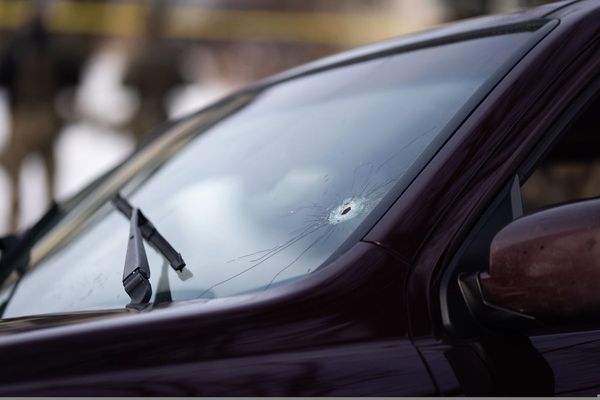A CHALLENGE over the ban of Palestine Action as a terror group is not “exceptional” and should not be heard at the High Court, lawyers for the Home Office have told a top court.
Palestine Action co-founder Huda Ammori is taking legal action against the department over then-Home Secretary Yvette Cooper’s decision to proscribe the group under anti-terror laws.
The ban, which began on July 5, made membership of, or support for, the direct action group a criminal offence punishable by up to 14 years in prison.
Justice Chamberlain later cleared Ammori to proceed with a challenge over the ban after finding that two arguments put forward on her behalf were “reasonably arguable”.
The Home Office is challenging this decision at the Court of Appeal in London, in a bid Ammori is opposing and has described as “deeply troubling”.
At a hearing on Thursday, barristers for the department said Ammori could bring her legal challenge to the Home Secretary and then the Proscribed Organisations Appeal Commission (POAC), rather than the High Court for a “judicial review”.
James Eadie (above), for the Home Office, said in written submissions that there was a “bespoke remedial mechanism”, which involves an application to the Home Secretary and then an appeal to POAC if needed, rather than going to the High Court.
He said this process is “coherent” and calibrated to protect public interests.
Eadie later told the court there was “nothing exceptional” about Ammori’s case, adding: “It would require an exceptional case before judicial review would cut in.”
He added: “If a claimant invites the court to exercise its discretion to entertain an application for judicial review in circumstances where Parliament itself has provided a statutory process intended to cater for the substantive challenges that could be made to the thing that affects the individual, it is for the claimant to show an exceptional case.”
The Court of Appeal was also told that Mr Justice Chamberlain’s finding that a POAC appeal would unlikely to be heard before next summer, compared with the High Court challenge now due in November, was “unevidenced and wrong”.
According to campaign group Defend Our Juries, more than 1,600 people have been arrested since the ban came into effect.
In a statement ahead of Thursday’s appeal, Ammori said: “It’s deeply troubling that the previous home secretary decided to try to stop a full legal review of her widely condemned decision to ban a protest group as a ‘terrorist’ organisation for the first time in British history.”
She continued: “A successful appeal would not only shield an unlawful ban from scrutiny — it would deny justice to thousands of people whose fundamental free speech rights have been violated by this ban.”
Raza Husain, for Ammori, said the High Court judge “rightly” found that the POAC was not the only place challenges against similar bans could be heard.

He added in written submissions that the judge had “concluded, in the unusual circumstances of this case and as a matter of discretion, that the POAC route was not a suitable alternative remedy”.
The barrister said the POAC is appropriate when the challenge relates to changed circumstances of the group, rather than a challenge over the initial lawfulness.
“The POAC route is not effectively or conveniently available for this claim. By contrast, there are no such limitations on the High Court’s remedial power,” he continued.
Husain later said Ammori should be able to bring more arguments to the full hearing which is due in November.
The barrister said it was “at least arguable” that the former home secretary had not acted for national security reasons, but for other, “improper” purposes, and that Ammori should be able to challenge the Home Office over potentially failing to properly consider the discriminatory effect against Palestinians or people who support Palestine.
At the end of the hearing before the Lady Chief Justice Baroness Carr, Lord Justice Lewis and Lord Justice Edis on Thursday, the judges reserved their decision.
Baroness Carr said they would try to give their judgment in October, adding: “We do understand, as they say, the need for speed."







